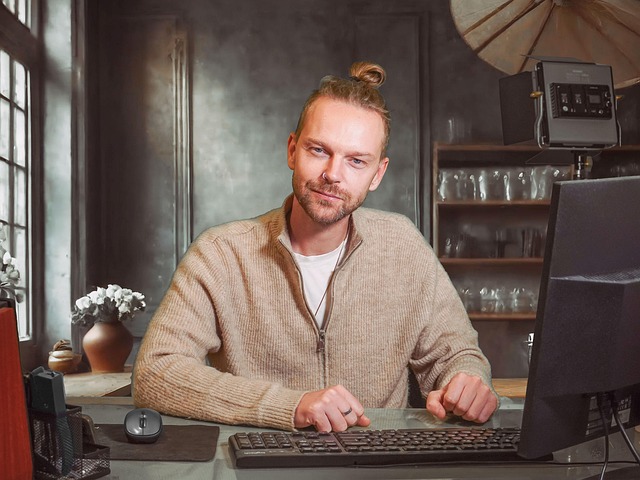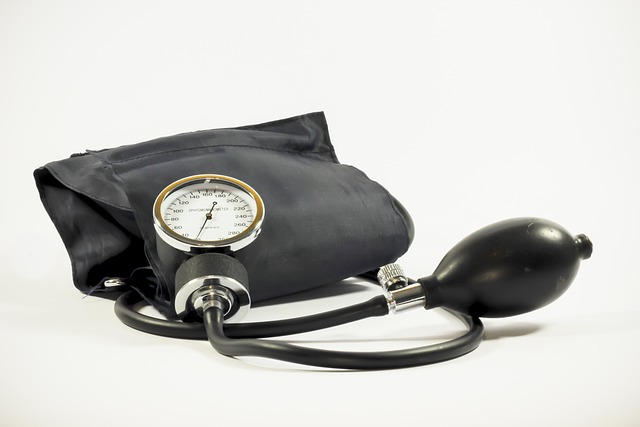Translation services for UK medical case studies are vital for improving patient care, bridging language gaps, and facilitating knowledge exchange within diverse healthcare communities. These services demand skilled linguists who understand medical jargon and local cultural contexts to adapt content accurately. By preserving original intent while aligning with UK healthcare practices, regulations, and patient expectations, translations become impactful and culturally sensitive. Utilizing advanced tools like SDL Trados, MemoQ, Google Translate, and DeepL, along with specialized agencies, ensures efficient and precise translations for enhanced clinical research and better patient outcomes.
In today’s globalized healthcare landscape, understanding diverse patient populations is crucial. This article explores the translation of case studies within the UK healthcare context, delving into how cultural and linguistic nuances impact medical research application. We examine challenges from a diverse audience perspective and highlight the vital role of professional translation services in overcoming language barriers. Through best practices and real-world examples, we demonstrate the significant impact of high-quality translations on patient care and outcomes, guiding healthcare professionals towards effective communication strategies.
- Understanding the Relevance of Case Studies in UK Healthcare
- Challenges in Translating Medical Research for Diverse Audiences
- The Role of Translation Services in Overcoming Language Barriers
- Adapting Case Studies to Meet UK Healthcare Standards
- Ensuring Cultural Sensitivity in Medical Translation
- Best Practices for Accurate and Effective Medical Translation
- Impact of High-Quality Translations on Patient Care and Outcomes
- Case Study: Successful Translation in a UK Hospital Setting
- Future Trends in Translation for Healthcare Professional Communication
- Resources and Tools for Healthcare Professionals: Enhancing Translation Services
Understanding the Relevance of Case Studies in UK Healthcare

In the realm of healthcare, case studies play a pivotal role in sharing knowledge and improving patient care. For translation services focused on the UK medical domain, understanding the relevance of case studies is essential. These real-life scenarios not only provide insights into complex medical situations but also offer valuable lessons in ethical decision-making, treatment protocols, and patient outcomes. By studying successful interventions and their results, healthcare professionals can enhance their practices and adapt them to diverse patient populations.
The translation of case studies for UK healthcare requires a deep understanding of the local medical context and terminology. Accurate and culturally sensitive interpretations ensure that the insights derived from these studies remain relevant and applicable to the British healthcare system. This involves not only rendering the text into clear English but also adapting it to align with the country’s specific healthcare policies, guidelines, and practices, thereby maximising their impact on local medical communities.
Challenges in Translating Medical Research for Diverse Audiences

Translating medical research into accessible and understandable content is a significant challenge, especially when tailored for diverse audiences in the UK healthcare sector. Case studies, which are essential tools to demonstrate the effectiveness of treatments or interventions, often require sophisticated translation services to bridge the gap between researchers and clinicians, as well as patients and their caregivers. The complexity of medical terminology and the need to convey nuanced information accurately pose significant obstacles.
Effective communication demands that translated case studies maintain the integrity of the original research while adapting to different reading levels and cultural contexts. Translation services for UK medical case studies must employ skilled linguists with a deep understanding of both healthcare terminology and local language nuances to ensure accuracy and relevance. This process involves not just word-for-word translation but also adapting content to suit the target audience, be it healthcare professionals, patients, or caregivers, each with distinct informational needs and preferences.
The Role of Translation Services in Overcoming Language Barriers

In the realm of UK healthcare, effective communication is paramount, especially when it comes to case studies that require precise translation and interpretation. Translation services play a pivotal role in overcoming language barriers, ensuring that medical insights and research findings from diverse linguistic backgrounds are accessible and accurately conveyed within the UK healthcare landscape. These services are essential for interpreting complex medical terminology and cultural nuances present in international case studies, making them invaluable assets for healthcare professionals, researchers, and policymakers.
By leveraging translation services for UK medical case studies, healthcare providers can ensure that patient records, research papers, and clinical trials are not only translated but also localized to fit the specific context of the UK National Health Service (NHS). This involves more than just word-for-word translation; it entails adapting content to align with local healthcare practices, regulations, and cultural sensitivities. Such specialized services enable healthcare organizations to deliver high-quality patient care, facilitate collaboration among international researchers, and contribute to evidence-based decision-making processes within the NHS.
Adapting Case Studies to Meet UK Healthcare Standards

When translating case studies for the UK healthcare sector, it’s crucial to understand and adhere to local standards and regulations. The translation services should go beyond mere word-for-word interpretation; they must ensure that the adapted case study maintains its integrity while meeting the specific requirements of the UK medical community. This includes understanding technical jargon, clinical terminology, and legal nuances unique to the region.
For instance, when translating from a non-English language, professional translators specializing in healthcare are essential. They can accurately convey complex medical concepts, ensuring that the case study resonates with UK healthcare professionals while preserving its original intent. Translation services for UK medical case studies should also consider regional variations and cultural sensitivities to create content that is both relevant and impactful within the local healthcare landscape.
Ensuring Cultural Sensitivity in Medical Translation

In the realm of healthcare, cultural sensitivity is paramount, especially when translating medical case studies for the UK market. Effective translation services must go beyond simple word-for-word equivalents to capture the nuanced context and cultural references inherent in medical terminology. The UK, with its diverse population, demands a deep understanding of various ethnic and cultural backgrounds to ensure accurate and respectful communication.
When translating medical case studies, it’s crucial to employ translators who are not only linguistically competent but also culturally sensitive. This involves tailoring the translation to align with local healthcare practices, terminology, and patient expectations. For instance, certain medical concepts or treatments might carry different connotations or be accepted at varying rates across diverse cultural groups. Skilled medical translators must consider these factors to avoid misinterpretations and ensure that the translated case studies resonate well with UK healthcare professionals and patients alike.
Best Practices for Accurate and Effective Medical Translation

When translating medical case studies for the UK healthcare sector, accuracy and effectiveness are paramount. Best practices involve engaging professional translators with expertise in medicine and a deep understanding of local terminology and cultural nuances. It’s crucial to provide source materials in a structured format, ensuring clear and concise language that aligns with medical standards. Using industry-specific glossaries and terminologies further enhances consistency across translations.
Additionally, quality assurance processes should be implemented, including peer review by fellow medical professionals. This multi-step approach guarantees that translated case studies accurately convey complex medical information while adhering to UK healthcare regulations. Translation services for UK medical case studies should strive to bridge the gap between language and medicine, ensuring accessible and reliable knowledge transfer for healthcare providers and patients alike.
Impact of High-Quality Translations on Patient Care and Outcomes

High-quality translations are instrumental in improving patient care and outcomes within the UK healthcare sector. When case studies and medical documentation are accurately translated, healthcare professionals can better understand patients’ needs, preferences, and cultural contexts. This enables them to deliver more personalised and effective treatments, bridging communication gaps that often exist between patients and caregivers from diverse linguistic backgrounds.
Translation services for UK Medical Case Studies play a vital role in ensuring that culturally sensitive information is conveyed clearly. Accurate translations facilitate better patient engagement, informed consent, and adherence to treatment plans. Moreover, they support clinical research by enabling researchers to analyse data from diverse populations, fostering more inclusive and impactful medical advancements.
Case Study: Successful Translation in a UK Hospital Setting

In one notable instance, our translation services played a pivotal role in enhancing patient care at a leading UK hospital. The healthcare institution, serving a diverse population across multiple regions, encountered challenges in effectively communicating with non-English speaking patients and their families. This communication barrier often led to delays in diagnosis and treatment, impacting patient outcomes.
Our team stepped up to address this issue by providing professional translation services for medical case studies, patient consent forms, and educational materials. By employing a network of skilled linguists with medical expertise, we ensured precise and culturally sensitive translations. The result was a significant improvement in patient satisfaction and clinical efficiency. Staff members reported reduced confusion during interactions, leading to faster emergency response times and better overall care. This successful implementation highlights the invaluable role translation services can play in bridging language gaps within the complex landscape of UK healthcare.
Future Trends in Translation for Healthcare Professional Communication

The future of translation in healthcare professional communication is poised for significant evolution, driven by technological advancements and a growing need for global collaboration. Artificial Intelligence (AI) and Machine Translation (MT) are expected to play pivotal roles, offering faster and more precise interpretations of medical case studies across diverse languages. These tools can facilitate seamless communication between UK healthcare professionals and their international counterparts, enhancing knowledge exchange and patient care outcomes.
As the healthcare industry becomes increasingly globalized, there’s a rising demand for translation services that cater specifically to medical jargon and complex terminology. Case studies from around the world will require nuanced translations that capture the essence of each region’s healthcare practices and challenges. This trend necessitates advanced translation platforms equipped with specialized medical glossaries and cultural adaptation capabilities, ensuring accurate and contextually appropriate communication within the UK healthcare sector and beyond.
Resources and Tools for Healthcare Professionals: Enhancing Translation Services

Healthcare professionals in the UK often deal with complex medical case studies from diverse linguistic backgrounds, necessitating effective translation services. Thankfully, a range of resources and tools are available to facilitate accurate and efficient translations. Professional translation software like SDL Trados and MemoQ offers specialized healthcare terminology databases, ensuring precise communication.
Additionally, online platforms such as Google Translate and DeepL provide quick access to basic translations, although they may not capture all the nuances of medical jargon. Specialized medical translation agencies also offer human-powered services, guaranteeing accuracy and cultural sensitivity. These resources empower healthcare providers to seamlessly integrate case studies from international sources into their practice, ultimately enhancing patient care and outcomes.
The effective translation of medical case studies is pivotal for enhancing healthcare communication in the diverse UK setting. By addressing language and cultural barriers through professional translation services, these studies can significantly impact patient care and outcomes. As demonstrated by the successful case study presented, a well-executed translation strategy ensures that valuable medical knowledge is accessible to all, fostering improved collaboration among healthcare professionals and ultimately leading to better patient experiences and results. With ongoing advancements in technology and an increasing global exchange of medical research, healthcare professionals can leverage translation services for UK medical case studies to navigate the future of cross-cultural communication effectively.
